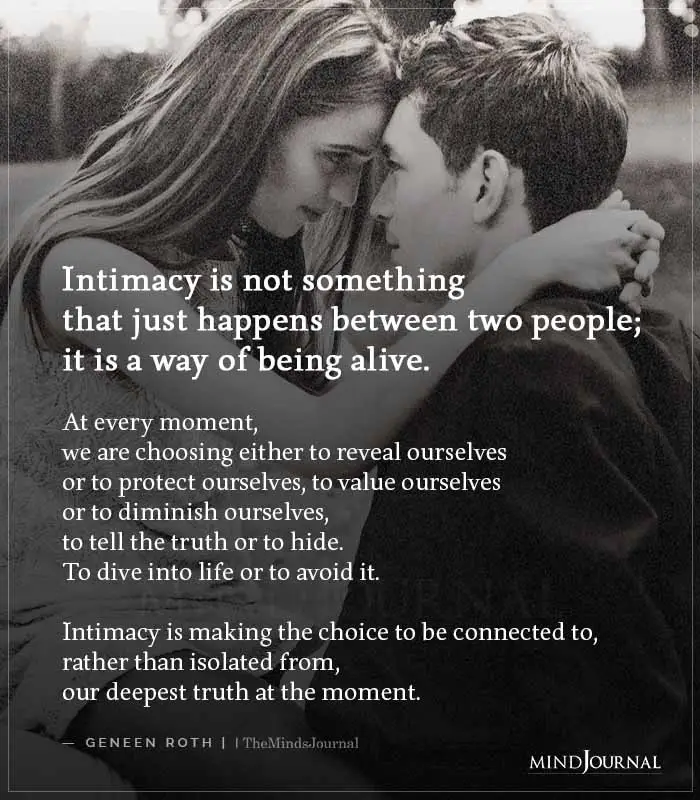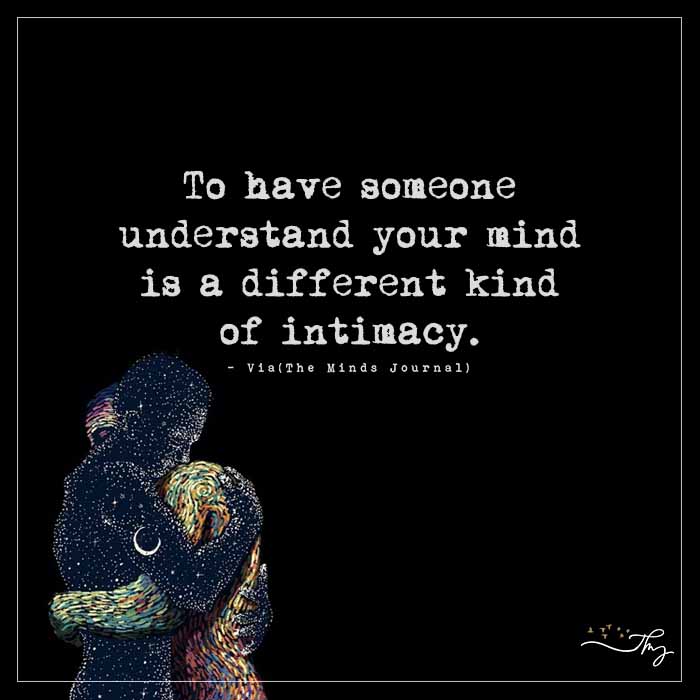True intimacy in a relationship is lost when attraction diminishes. Read on to know what it takes to achieve true intimacy and how to create a foundation for emotional and sexual intimacy.
It takes more than love to build a thriving partnership and meaningful friendship. It also takes emotional safety. In romantic relationships, love is a good start. But if we want to enjoy the secure and enduring connection of mature love, we need to feel safe, which creates a foundation for emotional and sexual intimacy.

Emotional Safety Is An Essential Ingredient For True Intimacy In A Relationship
We’re wired with a longing for safe, satisfying connections. But sadly, we may not be fully aware of how we disrupt the intimacy we want. If we can understand how intimacy gets derailed, we can become more mindful of what it takes to create emotionally safe connections.
Feeling emotionally safe means feeling internally relaxed and open. When we’re intimate, we feel connected. When we’re not connected, we feel distant, protective, or overly cautious. A nourishing intimacy happens when barriers melt and hearts open (while not neglecting the need for healthy boundaries).
Researcher John Gottman has identified criticism and contempt as all-too-common intimacy-busters. In fact, he describes contempt as the primary predictor of divorce. By diminishing a person through hurtful criticism or sarcasm, we trigger their self-protective mechanism. We activate their fight, flight, freeze response rather than invite the nectar of their love to nourish us.
A flower won’t bloom until conditions are supportive. Similarly, our tender hearts won’t open and reveal its beautiful secrets unless we feel internally safe. Consistent respect, kindness, and appreciation are antidotes to criticism and contempt; they create the necessary conditions for deepening love and intimacy.
Related: 3 Reasons Why Communication Is Crucial For Sustained Intimacy

An Eroding Attraction
Early in a romantic relationship, our emotional and sexual attraction is often strong. We may be baffled that it fades over time, perhaps concluding that this isn’t the right partner. Our dissatisfaction and confusion may prompt us to end the relationship or stray mindlessly into an affair.
One reason that our attraction may diminish is the loss of emotional safety and connection. Trust is a fragile flower that takes time to build and is easily damaged. If we receive a steady dose of being blamed or shamed rather than respected and cherished, our tender heart is likely to go into hiding to protect our vulnerable self.
We might think we should be stronger and just let things roll off our backs. And in fact, it may help to explore whether we’re taking things too personally, losing perspective, or feeling overly offended by light-hearted teasing. But hurtful teasing or shaming that poke our partner’s tender spots are likely to push him or her away, thereby frustrating our desire to connect.
Related: 3 Damaging Mistakes That Are Keeping You From Finding True Love
An erosion of emotional, sexual, or spiritual intimacy can be caused by many factors. A good starting point for unraveling this mystery may be to explore your possible contribution to the situation. Are you experiencing unmet needs or vulnerable feelings such as hurt, fear, or shame that you are acting out indirectly (perhaps angrily) rather than expressing in a non-blaming, mature way?

How well are you listening when your partner expresses feelings or needs that might be uncomfortable to hear? Do you tend to react defensively or not take your partner’s feelings and preferences seriously enough? Are you contributing to emotional disconnection because you insist on being right or feel uncomfortable when you don’t have control over a situation? Is it difficult to soothe yourself when you’re feeling frustrated or do you vent frustrations on others? Are you using words, body language (eye-rolling, head-shaking), or a tone of voice that raises your partner’s shields?
The subtle or not-so-subtle ways we blame, criticize, and shame people are kryptonite to intimacy. We may not be fully aware of the slow, steady drip of harm we inflict on our relationships by lashing out or being snarky in our communication. Building emotional safety in relationships begins by becoming mindful about what not to do in relationships.
Feeling emotionally safe frees us to share our feelings, thoughts, and desires without an intimacy-stifling fear. It takes mindfulness and courage to work with the shadow parts of us that might sabotage our longing for love and connection. When two people are committed to developing the skills necessary to create a safe climate for intimacy (perhaps with the help of a skilled couples therapist), relationships are more likely to thrive.
© John Amodeo
Please share this article with anyone who you may think will find it valuable and helpful.
Written by:John Amodeo, Ph.D., MFT Originally appeared on: Psychology Today Republished with Permission You may access John's free online articles with Psychology Today and check out his books by visiting his website:www.johnamodeo.com










Leave a Reply
You must be logged in to post a comment.